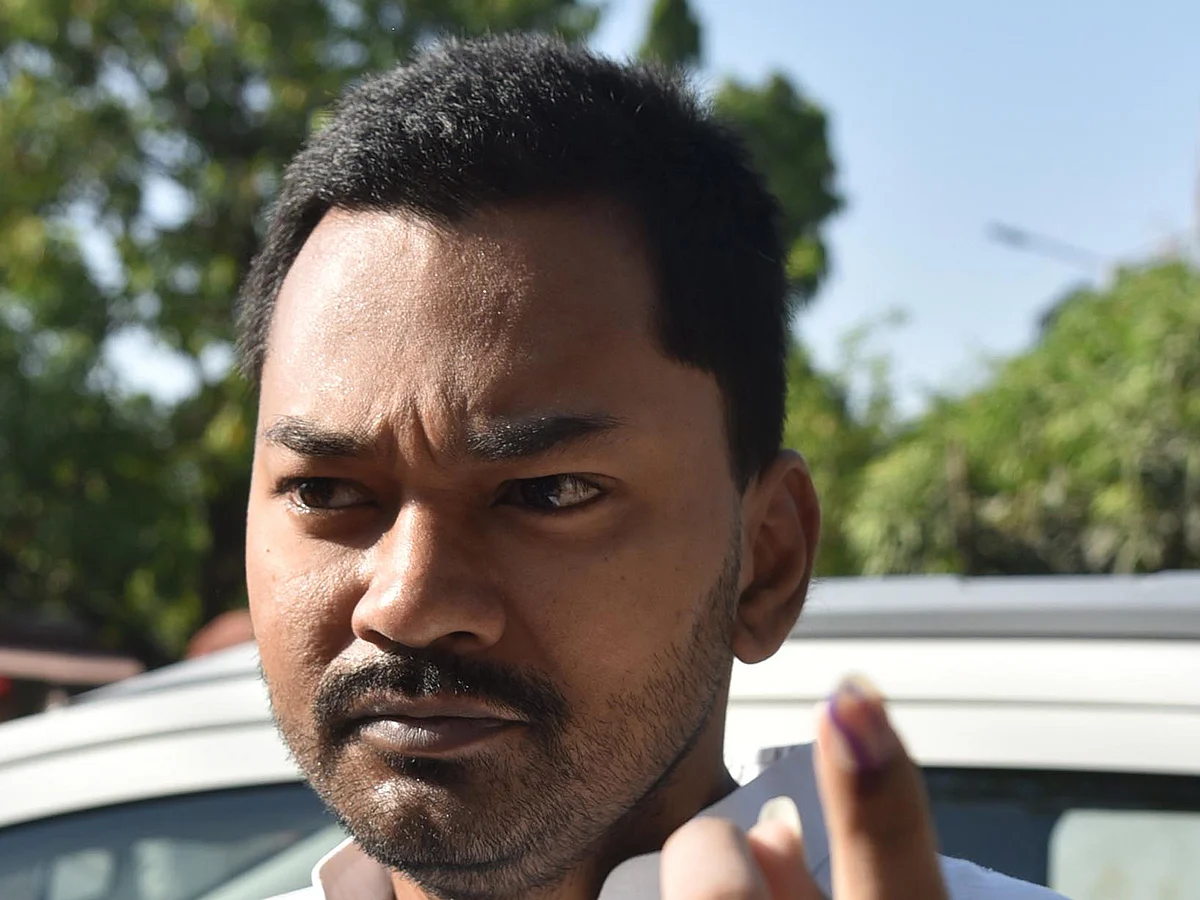The one thing you can always count on in Indian politics is dynastic politics. So much so that leaders and parties which railed against the rise of sons and daughters in Indian democracy are now all set to usher in a new son rise.
Nishant Kumar, the son of Bihar Chief Minister Nitish Kumar, is all set for his political debut “soon” because, of course, of the “tremendous pressure” of obliging Janata Dal (United) workers.
Nitish Kumar, 73, personifies the boomerang in Indian politics, periodically returning to the BJP to renew his lien on the CM’s office. This time around, Kumar has looked uncertain, with the BJP clearly in the driving seat.
Persistent rumours do the rounds in Patna about his ill health, and some recent controversial remarks have added grist to the mill. Lalu Prasad Yadav, Kumar’s old comrade-turned-rival, recently made a public offer of a “ghar wapsi” (return home) for Kumar, also getting the rumour mills buzzing.
Kumar finally pulled the ace from his cards to revive his politics — the son card. Nishant Kumar, 49, is an engineer like his father and has so far maintained the lowest profile among the Bihar dynasts, like Tejaswi and Tej Pratap Yadav, the sons of Lalu Yadav, and Chirag Paswan, the son of the late Ram Vilas Paswan.
Kumar lost his mother, Manju Singh, in 2007 and has even kept away from public events but now is seen with his father. At an earlier event, when asked by the press if he was interested in joining politics, he gave a firm no, saying he was “inclined towards spirituality.”
Nishant’s political debut makes father Nitish Kumar’s claims of being a follower of the Karpoori Thakur school of politics laughable. Thakur was a staunch advocate of anti-dynasty politics, and Kumar often targeted rivals, citing him as his inspiration.
Interestingly, while the GOP of India, Congress, is the original dynasty party with the first family of the Nehru-Gandhi family being the original prototype, and with all three family members — mother Sonia Gandhi and two children Rahul and Priyanka Gandhi — being in active politics, even Congress rivals have taken dynasty as a feature and not a bug in politics.
Even the BJP, which used to say “dynasty is nasty” in the immortal words of Venkaiah Naidu, has flourishing mini-dynasties of its own. From Devendra Fadnavis, Chief Minister of Maharashtra, both of whose parents were BJP leaders, to Piyush Goyal, whose father was the erstwhile BJP treasurer and union minister in the Vajpayee government, Ved Prakash Goyal and Chandrakanta Goyal, three-time MLA, Anurag Thakur, whose father Prem Kumar Dhumal was a former Chief Minister of Himachal Pradesh, Varun Gandhi, son of Maneka Gandhi, and Pankaj Singh, son of union minister Rajnath Singh.
Every political party has the dynastic bug, including all regional parties. Mamata Banerjee’s second-in-command is her nephew, Abhishek Banerjee. Mayawati has her nephew and his children as her political heirs. Sharad Pawar of the National Congress Party has his daughter Supriya Sule perched firmly as inheritor.
Uddhav Thackeray inherited the Shiv Sena from his father, Bal Thackeray, and has son Aditya Thackeray firmly in place, even after the Sena split. Eknath Shinde, who split the Sena, also has his son in politics, as does every party in Maharashtra. Poonam Mahajan is the daughter of the late Pramod Mahajan, and Pankaja Munde is the daughter of the late Gopinath Munde.
M K Stalin, Chief Minister of Tamil Nadu, is the son of M Karunanidhi and has already got his son, Udayanidhi Stalin, as his deputy CM and heir apparent.
The list of heirs is never-ending in Indian politics and includes Jammu & Kashmir’s current Chief Minister, Omar Abdullah, son of Farooq Abdullah. Apparently, Abdullah’s two sons are also on the verge of a political debut. Jyotiraditya Scindia is the son of Madhavrao Scindia, and his son, Mahanaryaman Scindia, is also all set for his political stint. Digvijaya Singh’s son, Jaivardhan Singh, is already in politics.
No state and no party except the left, a dying force, is immune from dynastic politics. When I first heard Prashant Kishor, political strategist-turned-politician, putting it about that he was Kumar’s “political heir” during his brief and eventually bitter stint in JDU before Kumar unceremoniously threw him out, I found it laughable. Like every political analyst, I knew that eventually Kumar would introduce his son into power politics.
The one leader who I remember told me with huge vehemence that he would never allow his children to join politics was L K Advani, who has remained firm on this.
Perhaps the biggest entry barrier in Indian politics is the heirloom politicians and dynastic politics. For someone who is not from a rich and privileged family with generational capital and a famous political brand, the chances of political success are near zero.
Every office of power and perks, like Rajya Sabha seats, has been cornered by dynasties. To get a ticket and contest the Lok Sabha is near impossible with the amount of money required to run a campaign and win.
India can now perhaps be called a dynastic democracy.
Network Links
GN StoreDownload our app
© Al Nisr Publishing LLC 2026. All rights reserved.
